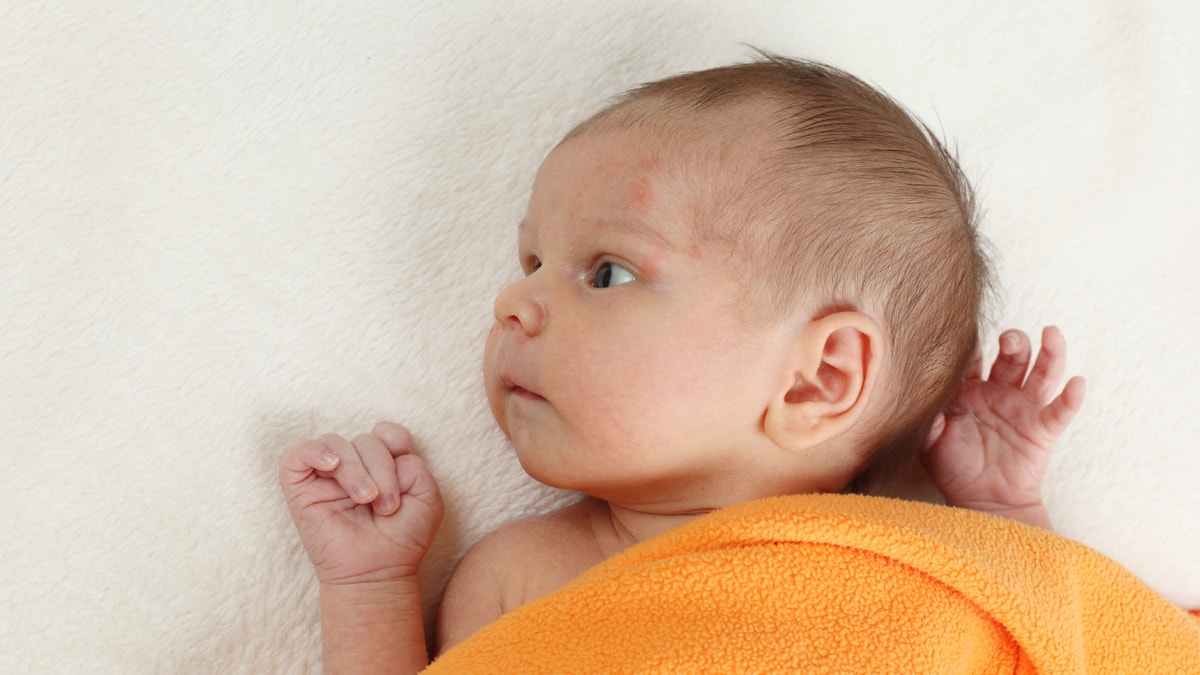
If your baby has red, scaly and itchy patches all over his body, chances are, it’s eczema, a persistent inflammatory disease of the skin that affects about 10 percent of children.
In babies, eczema can show up anywhere but it’s usually seen on the cheeks, the head, and the folds of the skin— the backs of the knees, the elbows and the neck.
Although there is no single known cause of eczema, the good news is that there are several proven ways to get it under control.
1. Give more baths.
It used to be believed that bathing frequently made eczema worse, when in fact if can be helpful. Cleansing the skin can help remove an overgrowth of staphylococcal bacteria, which may trigger eczema flares, said Dr. Megha M. Tollefson, an assistant professor of dermatology and pediatrics at the Mayo Clinic Children's Center in Rochester, Minn.
There’s no recommendation for how often to give baths, and what works for one baby may not work for yours. Nevertheless, always use warm water, only wash soiled areas and don’t bathe your baby longer than 15 minutes. Look for products labeled “cleansers” and those that are fragrance-, paraben- and phthalate-free.
Check ratings for products on the Environmental Working Group’s Skin Deep site. Pay attention to those labeled “natural” because they might have ingredients that are irritating to the skin, Tollefson said.
2. Moisturize.
After your baby’s bath, pat— don’t rub— his skin dry to leave some moisture behind. Then, seal the moisture in with an ointment or a thick cream at least twice a day. You can’t overdo moisturizing so have the cream handy at diaper changes too.
3. Consider bleach baths.
It sounds like one of the most dangerous chemicals you can put near your baby’s skin, but for babies with moderate to severe eczema, a bath with a small amount of highly-diluted bleach can help keep the bacteria under control without using antibiotics, Tollefson said. Bleach baths should only be used for babies who are able to sit up unsupported and should always be done with the guidance of your pediatrician.
4. Try probiotics.
A review and meta-analysis in the journal Allergy found that supplementing with probiotics during pregnancy and early infancy can prevent eczema in babies. Plus, a combination of probiotics and fish oil can completely clear up eczema in about half of babies, said Dr. Erika Krumbeck, a naturopathic physician who specializes in pediatrics and the founder and owner of Montana Whole Health in Missoula, Mont. Check with your doctor for the best brands and appropriate dosage.
5. Eliminate dairy.
One of the reasons some babies have eczema or tummy troubles might be because they’re inheriting bad gut bacteria from mom, Krumbeck said. Eliminating dairy, which is usually the most common culprit, can help baby’s eczema especially if mom has digestive problems herself.
If your baby is formula fed, try switching to a hypoallergenic formula or consider donor breast milk from a milk bank to see if it helps.
6. Ask the pediatrician about other treatments.
Depending on the severity of your baby’s eczema, the pediatrician may prescribe a topical steroid medication, antibiotics, oral medications or phototherapy. Another treatment, wet wrap therapy— which covers baby in wet dressings or pajamas— and topical steroids can also be very effective, Tollefson said.




















